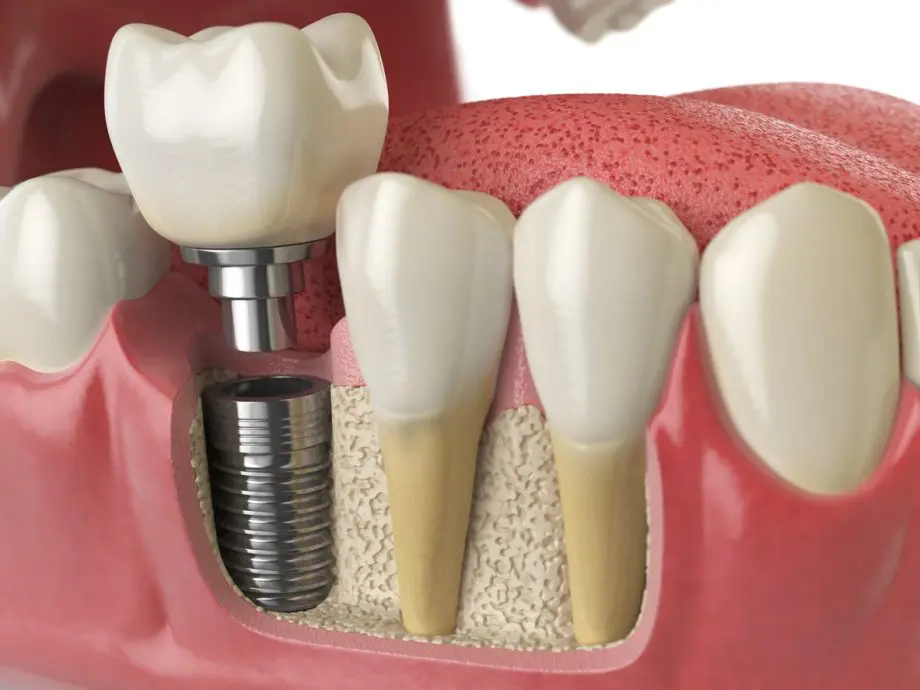Cheap Dental Implants Jenison MI - Dental Implants: Surgery, Purpose & Benefits
Cheap Dental Implants Jenison MI - Dental Implants: Surgery, Purpose & Benefits
Blog Article
Full Mouth Dental Implants Grand Haven MI - Dental Implants: Surgery, Advantages, Risks, & Insurance
When considering dental implants, understanding the anesthesia options out there is significant for a snug expertise. Patients usually feel anxious about dental procedures, making efficient pain management an important look at this web-site part of the treatment plan.
Local anesthesia is the most common alternative for dental implant surgical procedures. This sort of anesthesia numbs a selected space in the mouth the place the implant shall be placed. The purpose is to guarantee that the affected person doesn't feel any pain in the course of the procedure.
Dental Implants Affordable Grand Rapids MI - Dental Implants Procedure: What to Know
Dentists incessantly use injectable local anesthetics like lidocaine or articaine. These anesthetics work rapidly and effectively, allowing the dentist to perform the surgery while the affected person remains awake and relaxed. This is often accompanied by sedation to manage anxiousness levels.
Sedation dental implants might utilize a mixture of native and sedation choices. Intravenous (IV) sedation can be notably beneficial for sufferers with heightened nervousness or those present process in depth procedures. This technique allows the dentist to control the extent of sedation, making the affected person drowsy however not completely unconscious.
Some patients may favor oral sedation, which entails taking anti-anxiety medication before the appointment. This method permits people to really feel relaxed and calm as they arrive for the dental process. Dental Implants Affordable Grand Rapids MI. Although the affected person stays awake, they could have little to no memory of the surgery itself
General anesthesia is another viable option, significantly for complex instances. In this situation, the patient is completely unconscious during the surgery, making certain that they expertise no pain or awareness of the procedure. General anesthesia is often reserved for intensive surgeries or for sufferers who can't tolerate native anesthesia.
Dental Implants Whole Mouth Grandville MI - Dental Implants - Top Oral Surgeon
The choice of anesthesia can even rely upon individual affected person factors, corresponding to their medical history, level of tension, and the complexity of the implant surgery. Dentists usually consider these elements to tailor an applicable anesthesia plan.
A thorough pre-operative session is crucial. During this session, sufferers should ask questions and express any concerns regarding the anesthesia choices. Understanding what to anticipate can considerably cut back anxiety levels and facilitate a smoother experience.

Post-operative care is essential after receiving anesthesia of any type. Patients are typically advised to have somebody drive them house in the event that they received sedation or general anesthesia. This precaution helps ensure security, as patients could feel drowsy or disoriented afterward.
Patients could expertise some discomfort post-surgery, but this could normally be managed with over-the-counter pain relievers. The dentist will present guidelines and recommendations for pain management, allowing for a extra snug recovery.
Implants Dental Procedure Muskegon MI - Dental Implants - Missing Teeth - Dentures
In the days following the surgery, attending follow-up appointments is essential for tracking therapeutic and addressing any potential issues. These appointments give the dentist a possibility to judge the implant web site and the effectiveness of the anesthesia used.
Ultimately, the goal of using the right sort of anesthesia is to supply a protected, efficient, and pain-free expertise for patients receiving dental implants. Each affected person's needs are unique, and the anesthesia plan ought to reflect this individuality.
An informed determination relating to anesthesia can dramatically affect the overall experience with dental implants. Those seeking this therapy ought to feel empowered to interact their dentists in conversations about anesthesia choices. A collaborative method, where each dentist and affected person work collectively, often leads to the best outcomes.
Dental Implant And Bridges Jenison MI - Learn More About Your Implants Treatment
Investing time to understand the kinds of anesthesia out there can ease issues and result in a profitable dental implant process. Whether opting for local anesthesia, sedation, or basic anesthesia, patients will find a suitable technique that aligns with their consolation stage and dental needs.
As more individuals turn out to be educated about dental procedures and the related anesthesia choices, the stigma around dental visits continues to decrease. More persons are embracing dental health and the life-changing advantages of dental implants. With the proper approach to anesthesia, both the process itself and the recovery may be characterized by minimal discomfort and stress.
Implants Dental Implants Grand Rapids MI - Full Mouth Dental Implants
By prioritizing effective pain management strategies, dental professionals can significantly enhance the general experience for patients in search of dental implants. Choosing the best anesthesia is a basic part of that technique, paving the way for improved dental health and restored confidence with an attractive smile.
The collaborative effort between dentist and patient finally defines the success of dental implant procedures. Emphasizing communication in regards to the forms of anesthesia and what to anticipate may help mitigate fears. Empathy, understanding, and skilled care are the cornerstones of any profitable dental experience.
Moving forward, patients can belief their dental care suppliers to information them in making the most effective decisions concerning anesthesia for his or her specific situations. Together, they'll work toward attaining optimal results and a positive journey towards new dental health.
- Local anesthesia is usually used for dental implants to numb the specific space of the mouth the place the procedure takes place, permitting patients to stay awake and comfortable.
- Sedation dentistry can be utilized alongside native anesthesia, offering deeper relaxation for sufferers who might experience nervousness or discomfort during the process.
- General anesthesia could also be an choice for patients undergoing extra complicated implant surgical procedures, enabling them to be completely unconscious through the procedure.
- The alternative of anesthesia often is decided by the patient’s medical history, anxiousness ranges, and the complexity of the implant placement.
- Regional anesthesia, such as a nerve block, could be employed to supply focused pain relief to bigger areas of the mouth during implant surgery.
- Oral sedatives may be prescribed to be taken before the appointment, enhancing comfort levels and decreasing pre-surgery anxiousness.
- Anesthesia choices must be discussed completely through the session section, permitting sufferers to express their preferences and concerns.
- Recovery time and post-operative care may range primarily based on the kind of anesthesia used, highlighting the importance of personalised anesthesia planning.
- Monitoring of vitals is important, particularly when sedation or basic anesthesia is concerned, to ensure affected person safety all through the procedure.
- Dentists typically present detailed aftercare instructions to manage discomfort and guarantee proper therapeutic, regardless web link of the anesthesia method chosen.
What type of anesthesia is used for dental implants?
Dental Implant Dentures Grand Rapids MI - Best Dental Implants

What sort of anesthesia is typically used during dental implant procedures?undefinedMost dental implant procedures utilize native anesthesia. This numbs the particular area where the implant will be placed, making certain you stay snug in the course of the surgery.
Is sedation dentistry available for dental implants?undefinedYes, many dental practices offer sedation options like nitrous oxide (laughing gas) or oral sedatives. These might help manage nervousness and enhance consolation in the course of the process.
How efficient is native anesthesia for dental implants?undefinedLocal anesthesia is extremely efficient for dental implants, because it targets the nerves within the area, allowing for a pain-free experience through the surgery.

Can I request common anesthesia for my dental implant procedure?undefinedWhile some dental offices could accommodate requests for basic anesthesia, it's typically reserved for complicated instances or sufferers with severe anxiousness. It’s best to debate this along with your dentist.
Full Mouth Dental Implants Muskegon Heights MI - Dental Implants - Oral and Maxillofacial Surgery
Are there any risks associated with anesthesia during dental implant surgery?undefinedWhile local anesthesia is considered safe, potential risks include allergic reactions or complications associated to sedation (Dental Implants Affordable Walker MI). Always disclose your medical history to your dentist
How long does anesthesia last after dental implant surgery?undefinedLocal anesthesia typically lasts a number of hours, although this will likely range. You may experience numbness within the handled area for a brief interval earlier than regular sensation returns.
Will I feel pain through the dental implant procedure?undefinedWith efficient native anesthesia, you shouldn't feel pain during the procedure. Some pressure may be felt, nevertheless it shouldn't be painful.
What should I do if I feel anxious about anesthesia throughout my dental implant appointment?undefinedCommunicate your issues together with your dentist. They can provide information about the anesthesia used and offer sedation choices to help alleviate anxiety.
Implants Dental Implants Holland MI - Implants Dentistry - Dental Implants
Are there any aftercare directions regarding anesthesia post-surgery?undefinedYes, it is crucial to keep away from biting or chewing within the numbed area till sensation returns, in addition to to comply with any specific post-operative care instructions provided by your dentist.
Report this page